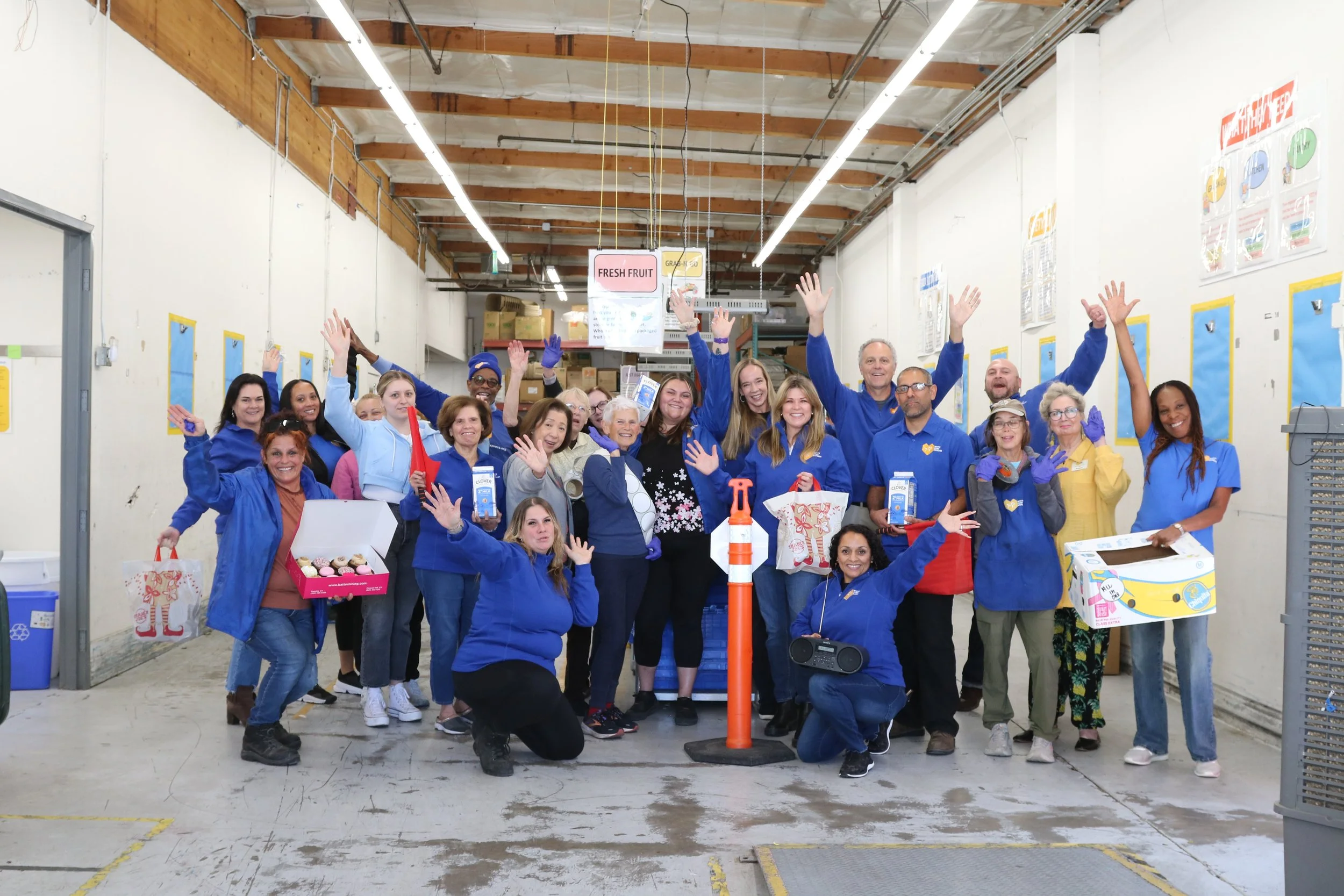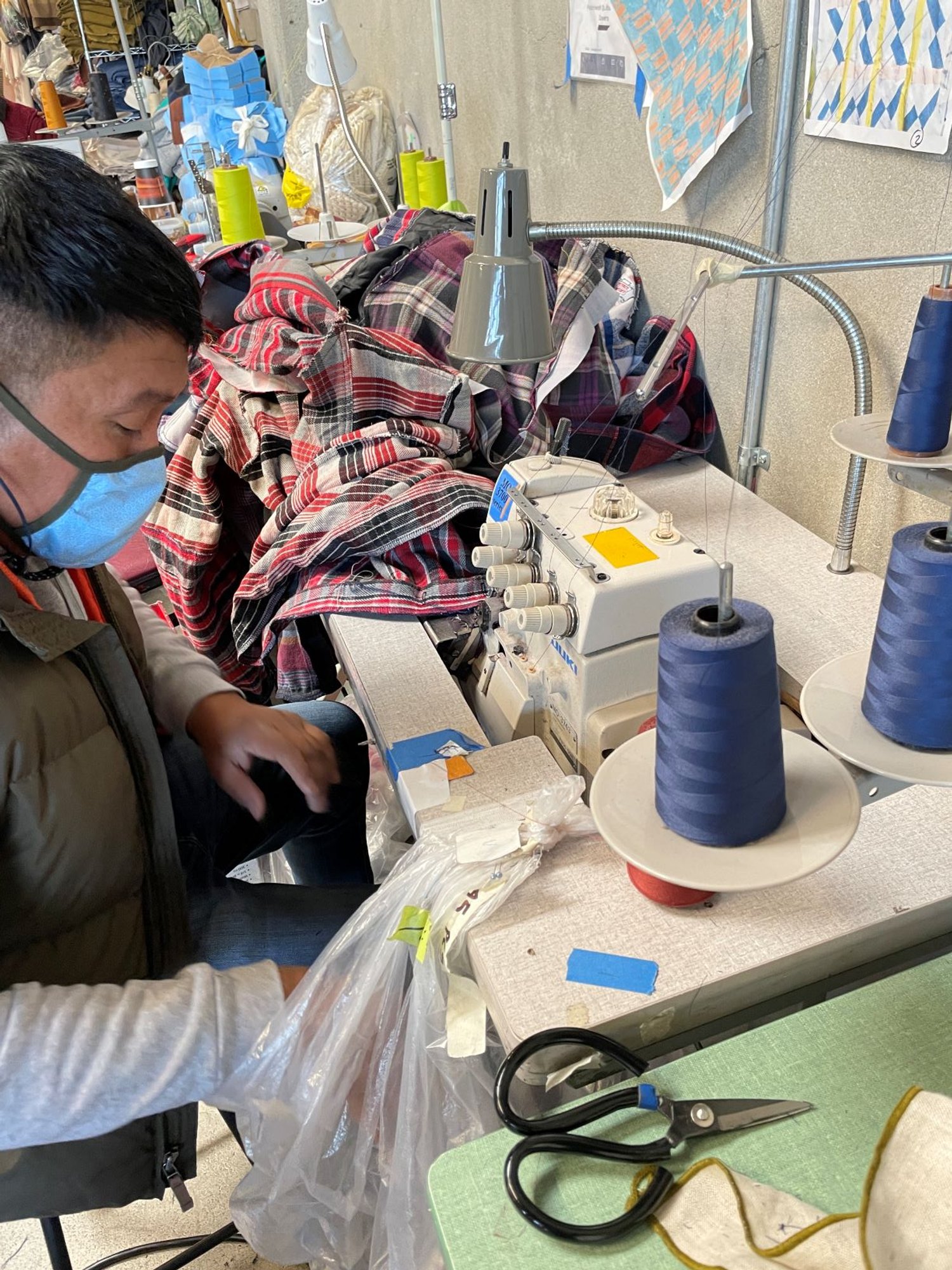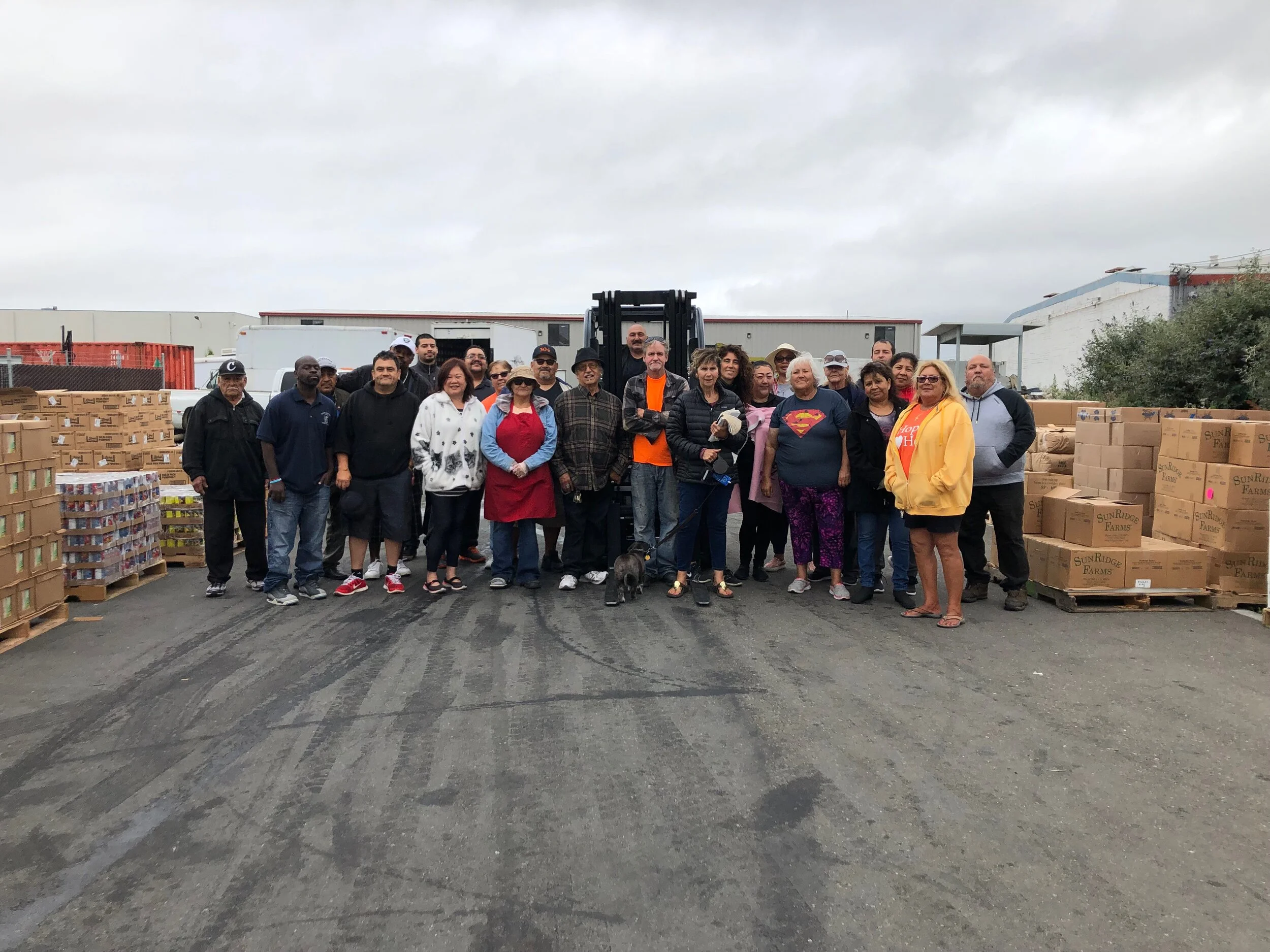CalRecycle’s Food Waste Prevention and Rescue Grant Program funds projects that lower overall greenhouse gas emissions in California through food waste prevention and rescue projects, which reduce the amount of food disposed in landfills. Receiving multiple grants from the program since fiscal year 2016-17, White Pony Express: Food Recovery for All is a food waste rescue project operating out of Pleasant Hill, California. It has received a total of $701,530 from California Climate Investments, as well as additional funding from CalRecycle’s Edible Food Recovery Grant Program.
Suay: Transforming Fast Fashion through a CalRecycle Reuse Grant
California Department of Resources Recycling and Recovery
Thanks to $1,315,378 from the Recycled Fiber, Plastic and Glass Grant Program, Suay is expanding their operations diverting textiles from landfills. Suay is a closed-loop recycling operation in Los Angeles that collects used garments and cleans, repairs, and re-sews these textiles remaking them into new products. The finished products are repaired clothing and remade products, such as pillows and dog beds that use stuffing from shredded garments that could not be repaired.
Saving Quality Wood Products from Landfills with Habitat for Humanity
The California Department of Resources Recycling and Recovery (CalRecycle) awarded $488,635 of California Climate Investment funds to Habitat for Humanity East Bay/Silicon Valley, Inc. as part of the first cycle of the Reuse Grant Program. This project is diverting wood products from landfills to their ReStore retail stores for reuse by the community. Habitat for Humanity East Bay/Silicon Valley, Inc. is a nonprofit, donation-based collection, and resale operation with three sites in Oakland, Concord, and San Jose, serving the San Francisco Bay Area.
Building the Capacity of a Food Rescue and Distribution Network in Fresno
California Department of Resources Recycling and Recovery
The non-profit Fresno Metropolitan Ministry (Fresno Metro), in partnership with the Central California Food Bank, is using a $300,000 grant from the Food Waste Prevention and Rescue Grant Program to expand their capacity to rescue and distribute more edible food through their Food to Share program. Over the grant term, Fresno Metro will add 20 new food recovery school sites from Fresno Unified and Central Unified School Districts, set up 5 new food distribution sites at local community-based organizations, and increase direct food recoveries by adding 2 new retail locations and 6 urban gleaning sites.
Kompogas SLO Inc. is Creating Fuel and Compost with Waste
Kompogas SLO Inc. received $3 million through the Organics Grants program to build a high-solids anaerobic digester, to be known as the Lancaster Organic Waste Facility, at the existing Lancaster Landfill and Recycling Center in Antelope Valley. With this new anaerobic digester, Kompogas SLO Inc. will be able to process residential food and green waste collected by Waste Management Inc. throughout Antelope Valley, including in the cities of Lancaster and Palmdale, and turn it into renewable natural gas and high-grade compost.
New Community Composting Program Sequesters Carbon While Providing Local-Level Benefits
The California Alliance for Community Composting (Alliance)is helping community groups develop or expand 50 community composting sites in disadvantaged and low-income communities across California using funds from the Community Composting for Green Spaces Grant Program. Altogether, these sites are expected to prevent nearly 11,000 tons of organic waste from going to landfills by creating compost, which prevents the release of greenhouse gases during its decomposition. The Alliance’s work will also provide communities with additional benefits, including free compost, job training, and more.
Replate, Inc. Matches Surplus Food with Communities in Need
Food Waste Prevention and Rescue in Alameda County
Expanding the Wholesale Produce Market Recovery Program in Los Angeles
Food Forward, which recovers produce and makes it available to hunger relief agencies in eight southern California counties, is expanding its Wholesale Produce Market Recovery Program. With the help of California Climate Investments, Food Forward will open a new “Produce Depot” near the wholesale produce market in downtown Los Angeles and double its food recovery capacity. In addition to fighting food insecurity in southern California, the project will benefit disadvantaged communities and the environment by supporting jobs and combating climate change.
Closed-Loop Recycling Solutions for Irrigation in the Central Coast
Netafim Irrigation, Inc. received a total of $2,011,647 from California Climate Investment through the Recycled Fiber, Plastic, and Glass Grant Program. This money supports its operations as a closed‑loop recycling solution for used irrigation tubing that serves commercial farming operations in the Central Coast region of California. Netafim’s grant is expanding an established and successful recycling operation. As a result of this expansion in Netafim’s operations, the project is estimated to divert 83,059 tons of material from landfills and reduce greenhouse gas emissions by 66,447 metric tons of carbon dioxide equivalent.
Reducing Emissions and Providing Jobs Through Glass Recycling in Victorville
Transforming Recycled Plastic into Reusable Bags
Move over Farm-to-Fork! There is a new sustainability movement emerging in California that is reducing waste, cutting GHG emissions, and providing access to new green jobs in communities across the State. You can see it on display at Command Packaging’s manufacturing facility south of downtown Los Angeles in Vernon. Think of it as “Ag-to-Bag.”
Escondido Anaerobic Digester Reduces Emissions and Provides Local Jobs
Converting Food Waste to Bioenergy in Rialto
Rialto Bioenergy Facility, LLC (Rialto) received a $4 million grant to fund the installation of an anaerobic digester and a freezer to salvage food that would otherwise go to the landfill. These will both be important to the operational success of Rialto’s new Southern California facility, which is expected to recycle 300,000 tons of organic waste from the region annually.
Anaerobic Digester Brings Biofuels and Jobs to Perris
Advanced Composting Facility Diverts Organic Waste in Kerman
One of the most advanced composting operations in California is scaling up its operations in Fresno County. Early in 2017, Mid Valley Disposal is opening its new 10-acre, 68,000 square foot composting facility in Kerman, California. In addition to creating 47 new jobs in California’s agricultural heartland, the project serves as a model of sustainability in California’s innovative fight against climate change.


















